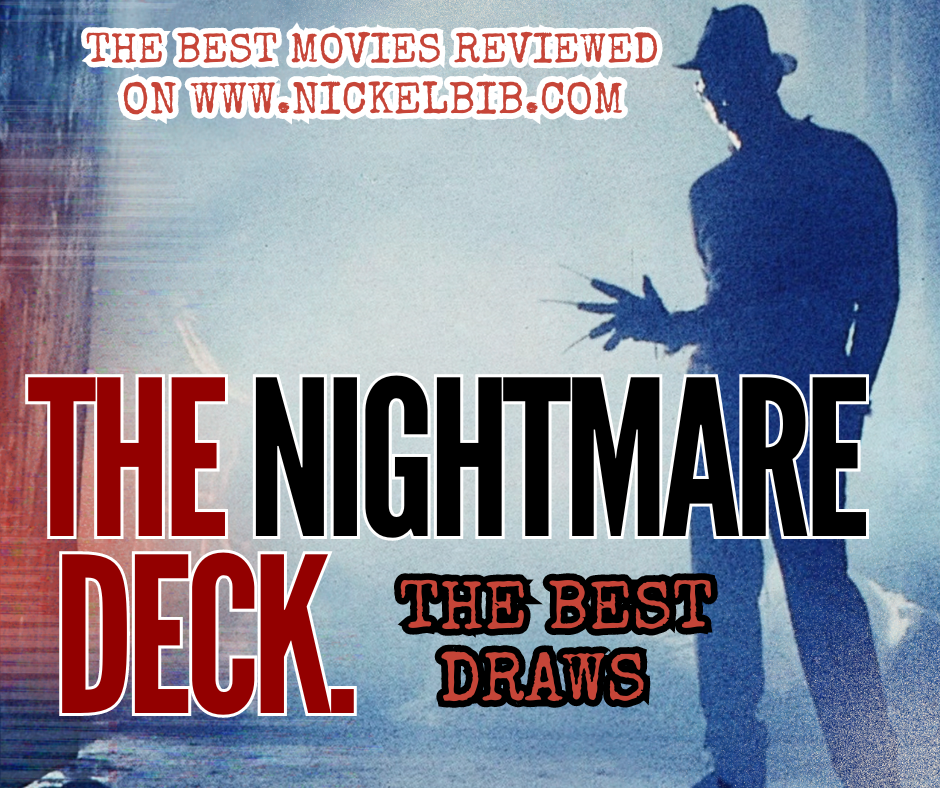Although it might be a contender for understatement of the year, Charles Manson is a controversial man and a controversial topic of discussion. In a lot of ways, that can make it difficult to share ones’ thoughts about a biographical drama based around him. Obviously, Readers Digested is dedicated to horror and dark subject-matter, and we proudly wear that as a badge of honor. However, if we are downright and honest, we are not inherently that taboo a platform. Whether it is something more animated like a slasher film, or something more cutthroat like Lar Von Tries’ film Antichrist, everything is rooted in fiction. Charles Manson was not. Charles Manson was a real life killer, and whichever way you look at it – making a film about a real life killer is, at the very least, exploitative in nature. This is something I think warrants further discussion later on, but I think what it comes down to, as an art-form, is that whatever you create warrants that exploitation and itself.
Charlie Says is a 2018 American biographic drama film directed by Mary Harron, a director whose name will ring a bell with many of you for her work as the reins of American Psycho. The film had its world premiere at the 75th Venice International Film Festival in September of that year, and was subsequently acquired and released on May 10, 2019, by IFC Films. I believe the film likely benefited from Quentin Tarantino‘s recent film Once Upon a Time in Hollywood for stirring up newfound interest in the Manson Murders. Unlike that film, however, which ultimately incorporated Charles Manson and his nefarious cult as more of a subplot mostly happening around the film and its character, Charlie Says is specifically and intently about the subject.
With a story written by Guinevere Turner (a writer with ties to American Psycho as well), Charlie Says is based on The Family by Ed Sanders and The Long Prison Journey of Leslie Van Houten by Karlene Faith. Starring Matt Smith as Charles Manson, the film focuses on the experiences of three of his followers: Leslie “Lulu” Van Houten (Hannah Murray), Patricia “Katie” Krenwinkel (Sosie Bacon), and Susan “Sadie” Atkins (Marianne Rendon). The three young girls were largely influenced by Manson and played a significant part in the Manson Murders, including the death of actress Sharon Tate.
The film sees our characters in a wraparound narrative of sorts, told through flashbacks. Lulu, Katie, and Sadie have since been incarcerated after their crimes and now, a young graduate student named Karlene Faith tries to help them understand what they have done and renounce Charles Manson. The transitions can often feel abrupt and disheveled, fading on and off screen in a way that never feels exactly seamless or structurally sound.
Every time I see it, it feels off, like a sitcom-y transition looking back, which is clearly not the intention. For that, I feel like the framing device does not succeed. I understand what the intention was for this wraparound. It shows the aftermath of the women who followed Charles Manson and how brainwashed and manipulated they were. Some people might dislike this approach because it “humanizes them,” but I don’t necessarily think humanizing them is a bad thing. The film doesn’t try to sell you on the idea that they should be freed from incarceration or anything like that, it is fully aware of what they have done and is not trying to make arguments to the contrary. Instead, it does offer a level of empathy, which only further illustrates and underscores how tragic and destructive everything was. The idea works in-retrospect, but is never as effective or as fleshed out as I would have liked.
Matt Smith does very well in the role of Charles Manson, capturing his alluring theologies and exemplifying his own self-contradictions and fallacies. I believe a lot of the times what we see in films portraying cults can feel textbook and even, at times, like dime store psychology. A lot of the time, I think many of us can overlook that. Susceptible people can be manipulated, and because we know it actually happened, it does not require more than that surface level exploration. This film offers a new angle to that, with how the film focuses mostly on his followers and their perception of Manson.
It shows the way he allures them with acceptance and praise, and it creates this illusion about his acceptance and the freedom from shame and the blame from your past. Then, in due time, it shows those promises and that belief system begin to show cracks in its armor. Smith’s portrayal is able to walk the line between the illusion of a modern Messiah and then, eventually, the insecure and mean man underneath that veil.
The film is definitive, with a runtime shy of about 110 minutes, it shines a light on the lifestyle of Manson’s cult, his relationship with Beach Boys drummer Dennis Wilson, and the eventual murders thereafter. One of the pitfalls about covering a subject-matter, particularly one that feels like it has been so prevalent in Western society, is that it can inherit a certain tedium to it. What I mean is, although there maybe has not been that many films about Manson and his nefarious and malicious crimes (although there have been a few), anyone who has read-up about it will in-turn feel like they have already seen this film. If you are someone who is unfamiliar with Manson and have that morbid curiosity (no judgment) about him, then this film offers a solid observation. For anyone else though, Matt Smith’s portrayal may be the only takeaway you’re left with.
Charlie Says is a decent film and I think I would recommend it to individuals interested in the subject matter, but it is very conventional (which in turn means its largest offense is its own existence as a film about real life murder victims being murdered as characters, not by some otherwise egregious stance) and it does not peel back a lot of new insights to an event we will likely be drawn to and fixated on for many decades to come.





